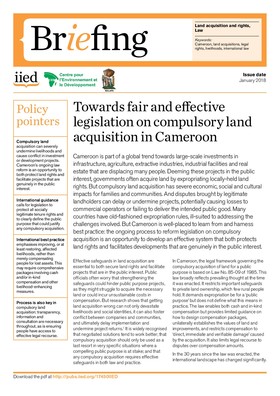Land reform revisited: democracy, state making and agrarian transformation in post-apartheid South Africa
Revisiting South Africa's land and agrarian questions / Grasian Mkodzongi and Femke Brandt -- Broadening conceptions of democracy and citizenship : the subaltern histories of rural resistance in Mpondoland and Marikana / Sarah Bruchhausen and Camalita Naicker -- From material to cultural : historiographic approaches to the Eastern Cape's agrarian past / Elene Cloete -- South Africa's dangerous game : re-configuring power and belonging on Karoo trophy-hunting farms / Femke Brandt -- Gendered nationhood and the land question in South Africa 20 years after democracy / Kezia Batisai -- Farm wor


